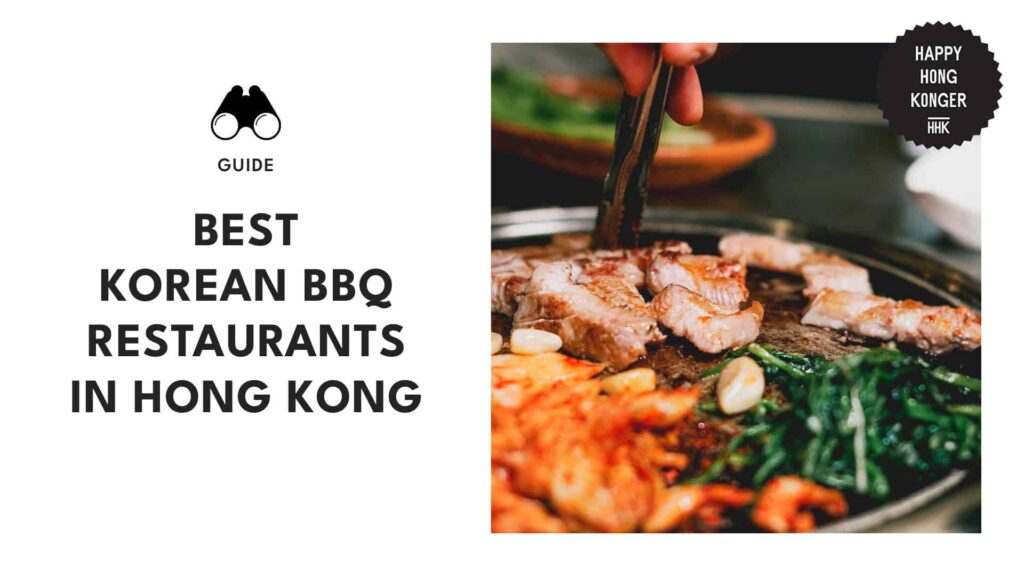Categories > Guides and Tips

All About the Meat Consumption Crisis in Hong Kong
- What place consumes the most meat in the world?
- Why does Hong Kong consume so much meat?
- Reason 1: Traditional Hong Kong dishes use a lot of meat
- Reason 2: There are a lot of restaurants focused on meat dishes
- Reason 3: Hong Kong has an overpopulation problem
- How do social factors influence meat consumption in Hong Kong?
- What are the health and environmental concerns associated with meat consumption in Hong Kong?
- High Cholesterol
- Colorectal Cancer
- Dehydration
- Carbon Emissions
- Decrease in Biodiversity
- Excessive Water Usage
- What initiatives and policies promote sustainable and healthy diets in Hong Kong?
- What’s the typical diet of a person in Hong Kong?
It seems that most of the population in Hong Kong has an undying love for meat. In fact, we’re said to be the biggest meat consumers in the world!
In this article, we take a look at why we Hongkongers eat so much meat, what plant-based restaurants to try, and other tips to help those who want to make the switch to plant-based dishes.
What place consumes the most meat in the world?
Hong Kong consumes the most meat out of all the places in the world, averaging 137.08kg per person daily as per Wise Voter.
Why does Hong Kong consume so much meat?
There are plenty of reasons why Hong Kongers consume so much meat like how our traditional dishes feature plenty of cooking that includes meat, new restaurants opening up, and overpopulation.
We explored the reason behind why this city consumes a lot of meat more than most below.
Reason 1: Traditional Hong Kong dishes use a lot of meat
A lot of famous Cantonese cuisine staples include meat, which is one of the reasons why the locals here consume plenty of it. This includes wontons, roast goose, beef brisket noodles, and more.
These dishes are easily accessible because of how many restaurants there are in the city, which leads to a lot of locals eating more meat.
Additionally, a lot of Hong Kongers prefer eating out compared to cooking in their cramped kitchen not just because of the lack of space, but also because they tend to lead a more fast-paced lifestyle.
Most of the time, we don’t have time to prepare dishes from scratch, so we just buy them from restaurants and eat it there or have it to go.
Reason 2: There are a lot of restaurants focused on meat dishes
Since a lot of Hong Kongers like consuming meat, of course local restaurants would follow that demand! The locals here are also quite experimental with their palates and most aren’t afraid to spend more.
That’s why Japanese Wagyu has become quite popular here. In fact, it’s becoming more and more popular, which is why you’ll see it incorporated a lot in traditional Cantonese dishes like siu mai, spring rolls, and many more.
By the way, Hong Kong is considered one of the largest importers of Japanese Wagyu!
Reason 3: Hong Kong has an overpopulation problem
Compared to its neighboring countries like Taiwan, Hong Kong is quite crowded and overpopulated. Since there are plenty of Hong Kong citizens, when you compute what everyone eats, it’s only natural that there is more meat being consumed here because of the increasing number of its population.
How do social factors influence meat consumption in Hong Kong?
Since Hong Kong has one of the most expensive meat prices in Asia, social factors influence meat consumption in Hong Kong by making it more available to the upper to mid-class citizens. Unfortunately, this means that low-income families can’t afford meat.
However, despite this, Hong Kong still consumes the most meat out of all the places in the world. How so, you ask?
Well, there are several factors that contribute to this like high standard of living. Globally, Hong Kong is considered one of the wealthiest cities, with a significant proportion of its population enjoying high incomes. That’s why a lot of people can spend more on meat even though it’s expensive.
Another possible factor is that Hong Kongers live a fast-paced lifestyle. Most don’t even have time to cook!
A lot of individuals opt for ordering food where meat is often a staple choice due to its availability, convenience, and nutritional value.
What are the health and environmental concerns associated with meat consumption in Hong Kong?
There are plenty of health and environmental concerns associated with meat consumption in Hong Kong. When it comes to health, it could lead to high cholesterol, colorectal cancer, and dehydration.
Meanwhile, environmental concerns associated with meat consumption in Hong Kong are carbon emissions, decrease in biodiversity, and excessive water usage.
Of course, that doesn’t mean it’s “bad food” per se. However, to prevent these kinds of issues, it’s important to eat a balanced diet by not consuming too much meat.
High Cholesterol
Meat that is high in saturated fat can cause an increase in cholesterol. If your cholesterol is high, it could eventually lead to coronary heart disease.
Colorectal Cancer
Also called colon cancer, colorectal cancer is a kind of cancer in the colon and rectum. According to the National Institutes of Health, consuming a lot of red meat can increase your chance of getting this type of cancer.
Dehydration
Processed meats like bacon and ham are carcinogenic and are also high in sodium. This is why eating them in large amounts could lead to dehydration.
Carbon Emissions
You’ll see a lot of people say that eating meat is bad for the environment, but what does it really mean? Because of the agricultural process that goes with processing meat, producing it leaves a nasty carbon footprint that unfortunately contributes to global warming.
Decrease in Biodiversity
Consuming meat puts biodiversity at risk. Why? Let’s explain it this way: over the years, there has been an increase in meat consumption. In fact, 30% of the decrease in biodiversity is because of livestock production.
This could be traced back to land conversion and deforestation to make more space for commercial farming, thus leading to loss in biodiversity. It’s similar to the butterfly effect, when one small act can lead to hugely altering events.
Excessive Water Usage
This is something that surprises a lot of people. Producing meat tends to involve a lot of water usage. For example, making one steak requires 50 bathtubs worth of water. Additionally, it takes about 5,000 liters of water to produce just 1 kg of beef.
What initiatives and policies promote sustainable and healthy diets in Hong Kong?
To promote sustainable and healthy diets in Hong Kong, authorities are making school lunches more sustainable, promoting an active lifestyle, and urging the consumption of healthy foods like fruits and vegetables.
What’s the typical diet of a person in Hong Kong?
For a lot of Hong Kongers, the typical diet consists of vegetables, meat, fruits, and grains.
When it comes to meat consumption, on a daily basis, Hong Kongers consume 55g of pork, 78g of red meat, 32g of poultry, and 19g of beef on average. However, people also like adding a lot of vegetables to their diet, so while they do consume a lot of meat, they like eating it in smaller quantities.





